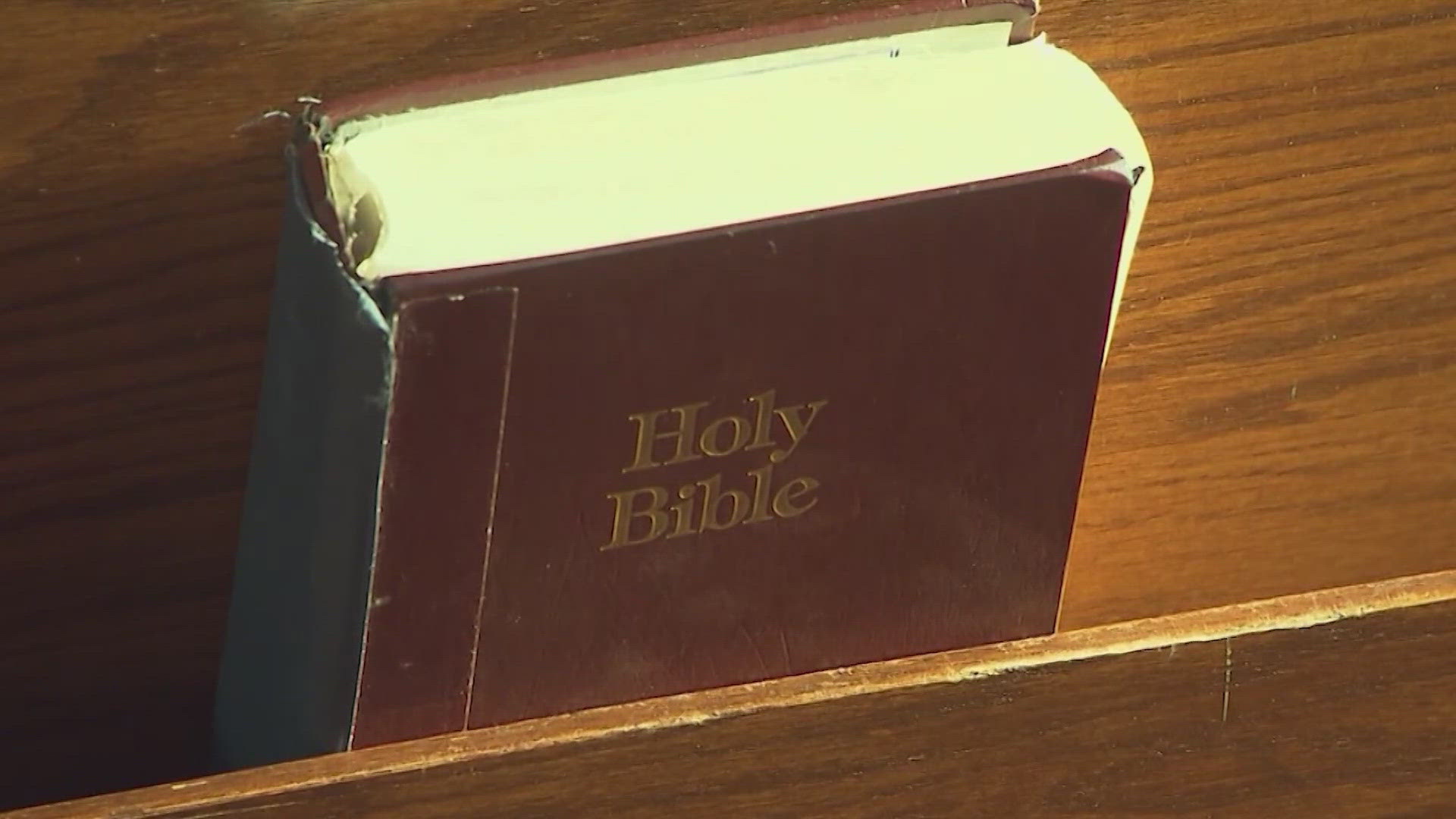DALLAS — It might be called the "Dirty Thirty."
Thirty miles of Interstate 45 south of Dallas where four towns are among Texas' highest in writing speeding tickets: Wilmer, Ferris, Palmer and Rice.
They range in population from 3,800 down to 922, and rank among the highest in Texas for pending traffic cases per capita, according to a WFAA News 8 analysis.
Using data from the Texas Judicial Branch, WFAA compiled figures for about 800 cities in Texas, including the number of cases pending in their municipal courts, compared to the number of people living in the city. Pending municipal court cases are made up primarily of speeding citations, which can mean big revenues for some cities. We then ranked the cities, and noticed a cluster of top cities along I-45. We then asked them for their municipal court revenue figures.
"A lot of them set up speed traps on I-45 and write hundreds of tickets a month," said Robert guest, a frequent I-45 commuter and attorney who has defended accused speeders in municipal court.
Palmer wrote 1,080 speeding and warning tickets last month alone, according to city administrator Doug Young. The city has just 2,023 residents. In total, as of 2014, they had more than 29,000 pending municipal court cases, which is the equivalent of nearly 15 for every one resident of the town, WFAA News 8's research shows. That's the third highest ratio in the state, topped only by Del Rio on the Texas-Mexico border, and Estelline, located on Highway 287 in the Panhandle.
Municipal court revenue makes up 50 percent of Palmer's income, or $1,010,000, as reflected in the city's budget. In an email to WFAA News 8, administrator Young says only 71 percent of municipal court income comes from traffic tickets, but he did not provide the data to support that statistic. He declined to be interviewed on camera.
"Small towns count on that revenue to make ends meet," said Guest, who says that he's received a ticket on that stretch of I-45. "It's easier to tax commuters who you don't know, and don't vote, than it is to raise taxes on people who can vote against you."
Nearby in Ferris, municipal court revenues make up about 14 percent of the city's budget. Collections were $524,000 last year – about half as much as Palmer. Ferris ranked fifth in the state in the number of municipal court cases pending per capita.
Ferris city manager Dennis Burn says ticket income is important. "I would say yes, we do need it, to a degree. We don't totally survive on it, but it is a component of our revenue."
The next town north, Wilmer, ranks 64th in Texas in pending court cases per capita. The city, population 3,800, collected $967,000 in municipal court fees last year. The city referred us to the police department for an interview, but the department could find no one to discuss the issue.
Down in Rice, the southernmost town on the "Dirty Thirty," the population is 922. The city collected $279,000 in municipal court fines last year, amounting to 29 percent of the city's revenue. Now one in Rice was willing to be interviewed by WFAA News 8.
Dennis Burn of Ferris points out that speeding is a safety issue before it's a revenue issue.
"We need to mind the speed limits wherever we are, whether on a city street or an interstate," Burn told WFAA. "When you're going excessive speed, I think yes, it is a danger."
Burn also points out that not every speeding ticket in municipal court is for a violation on I-45. Some may be from roads inside the city.
Some people ticketed on I-45 may be a public danger, others may not. The reality, attorney Guest says, is most cases go unchallenged because it's too difficult for out-of-town motorists to go back to one of the cities on the Dirty Thirty to fight their traffic case.
"When you go to court to challenge the case," Guest said, "it can take so long and you miss so much work that most people, the vast majority, give up and end up paying the ticket."
The state comptroller audits towns less than 5,000 population for excess highway fines. The last time it did that for any of the towns along the Dirty Thirty was six years ago. At that time Rice was found to have over-collected nearly $65,000 in excess ticket fines. Rice has been paying its traffic fine back bit by bit. It still owes the state about $2,700, records show.


